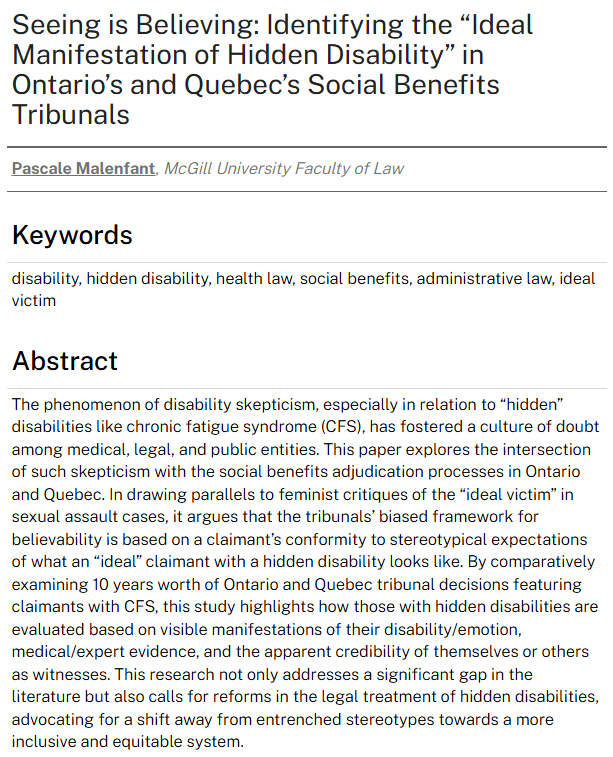Seeing is Believing: Identifying the “Ideal Manifestation of Hidden Disability” in Ontario’s and Quebec’s Social Benefits Tribunals
Authors
Pascale Malenfant, McGill University Faculty of Law
Keywords
disability, hidden disability, health law, social benefits, administrative law, ideal victim
Abstract
The phenomenon of disability skepticism, especially in relation to “hidden” disabilities like chronic fatigue syndrome (CFS), has fostered a culture of doubt among medical, legal, and public entities. This paper explores the intersection of such skepticism with the social benefits adjudication processes in Ontario and Quebec. In drawing parallels to feminist critiques of the “ideal victim” in sexual assault cases, it argues that the tribunals’ biased framework for believability is based on a claimant’s conformity to stereotypical expectations of what an “ideal” claimant with a hidden disability looks like. By comparatively examining 10 years worth of Ontario and Quebec tribunal decisions featuring claimants with CFS, this study highlights how those with hidden disabilities are evaluated based on visible manifestations of their disability/emotion, medical/expert evidence, and the apparent credibility of themselves or others as witnesses. This research not only addresses a significant gap in the literature but also calls for reforms in the legal treatment of hidden disabilities, advocating for a shift away from entrenched stereotypes towards a more inclusive and equitable system


